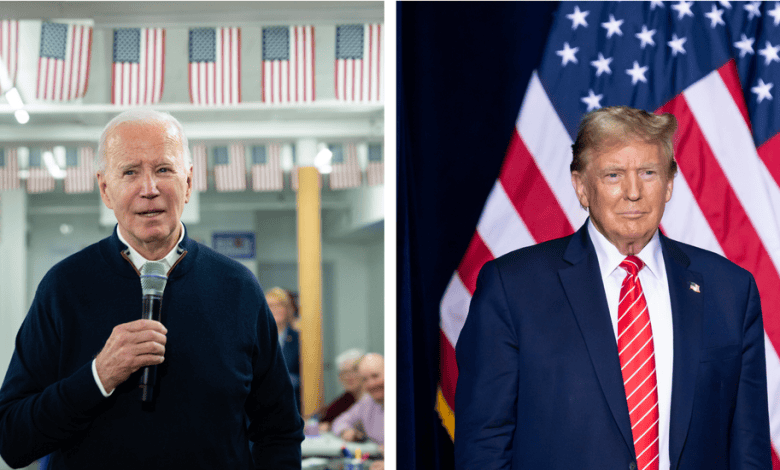Biden Budget Lays Out Economic Battle Lines Against Trump

President Biden in his budget this week staked out major economic battle lines with former President Donald J. Trump, the presumptive Republican presidential nominee. The proposal offers the nation a glimpse of the diverging directions that retirement programs, taxes, trade and energy policy could take depending on the outcome of the November election.
During the past three years, Mr. Biden has enacted key pieces of legislation aimed at bolstering the green energy economy, making infrastructure investments and reinforcing America’s domestic supply chain with subsidies for microchips, solar technology and electric vehicles. Few of those priorities are shared by Mr. Trump, who has pledged to cut more taxes and erect new trade barriers if re-elected.
The inflection point will be arriving as the economy enters the final stretch of what economists are now expecting to be a “soft landing” after two years of high inflation. However, the prospect of a second Trump administration has injected increased uncertainty into the economic outlook, as companies and policymakers around the world brace for what could be a dramatic shift in the economic stewardship of the United States.
Here are some of the most striking differences in the economic policies of the two presidential candidates.
Sparring over the social safety net
At first glance, Mr. Biden and Mr. Trump might appear to have similar positions on the nation’s social safety net programs. In 2016, Mr. Trump broke with his fellow Republicans and refused to support cuts to Social Security or Medicare. Mr. Biden has long insisted that the programs should be protected and has hammered Republicans who have suggested cutting or scaling back the programs.
In his budget proposal on Monday, Mr. Biden reiterated his commitment to preserving the nation’s entitlement system. He called for new efforts to improve the solvency of Social Security and Medicare, including making wealthy Americans pay more into the health program. However, his plans were light on details regarding how to ensure both programs’ long-term sustainability.